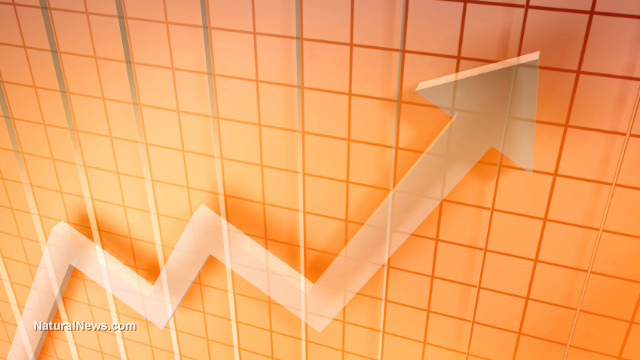If you’re trying to understand today’s stock market and are having some degree of difficulty, you’re not alone.
The markets are confusing enough sometimes for experts, so they can be particularly baffling for laypersons. Still, a few economic basics ought to be pretty simple to understand, right?
Wrong – apparently.
About a year ago, as documented by the Zero Hedge website, Federal Reserve Chairwoman Janet Yellen noted that some stocks were “substantially stretched” – as in, overvalued. One of the sectors she mentioned was the biotech sector:
Nevertheless, valuation metrics in some sectors do appear substantially stretched—particularly those for smaller firms in the social media and biotechnology industries, despite a notable downturn in equity prices for such firms early in the year. …
Equity valuations of smaller firms as well as social media and biotechnology firms appear to be stretched, with ratios of prices to forward earnings remaining high relative to historical norms.
“Extremely overheated“
With such a declaration from someone widely considered to be the top financial advisor in the country that biotech stocks are not worth as much as they are selling for, you might think that investors would flee the sector by selling off their biotech stocks sooner rather than later, in order to take profits.
Why? Because a declaration by the nation’s top banker that a sector is overvalued would normally lead to a correction – that is, stock in the aforementioned overly priced sector would likely fall in value to better reflect what they are really worth, right?
Well, if that basic market reaction were true, it doesn’t explain why, nearly 12 months to the day after Yellen pronounced biotech stocks overpriced, their value has increased 88 percent.
Does that mean that they’re not overvalued now – that a correction has already taken place and that biotech stocks are now priced right?
Or is biotech still over-priced, and perhaps even more so now? If that is the case, why is it the case? What good could possibly come from overvaluing any stock?
Long-term, there is nothing good that can come from stock market overvaluation, in any sector. Consider the tech bubble of 2000 or the housing and toxic home loan burst in 2007 that led to the Great Recession.
Some financial experts not named Janet Yellen think they seem storm clouds ahead because they don’t believe that anything they are seeing on Wall Street – or in the nation’s capital – is real.
“I think the public is walking into a trap again as they did in 2007,” billionaire investor Carl Icahn told CNBC’s Fast Money: Halftime Report. “I think it’s almost the duty of well-respected investors, like myself I hope, to warn people, to tell people, that really you are making errors.” He added that the markets were “extremely overheated—especially high-yield bonds.”
‘$210 trillion debt’
Another expert thinks the biggest bubble of all is the federal government.
“I told them the real (2014) deficit was $5 trillion, not the $500 billion or $300 billion or whatever it was announced to be this year. Almost all the liabilities of the government are being kept off the books by bogus accounting,” renowned economist Laurence Kotlikoff said of his testimony before a Senate committee in March, as reported by the website USAWatchdog.
“The government is 58% underfinanced…. Social Security is 33% underfinanced…. So, the entire government enterprise is in worse fiscal shape than Social Security is, but they are both in terrible shape,” he said.
“If you take all the expenditures that the government is expected to make, as projected by the Congressional Budget Office (CBO), all the spending on defense, repairing the roads, paying for the Supreme Court Justices’ salaries, Social Security, Medicare, Medicaid, welfare, everything and take all those expenditures into the future… and compare that to all the taxes that are projected to come in, and the difference is $210 trillion,” he added. “That’s the fiscal gap. That’s our true debt.”
He said a government debt collapse is not a matter of if, but when.
Sources:


